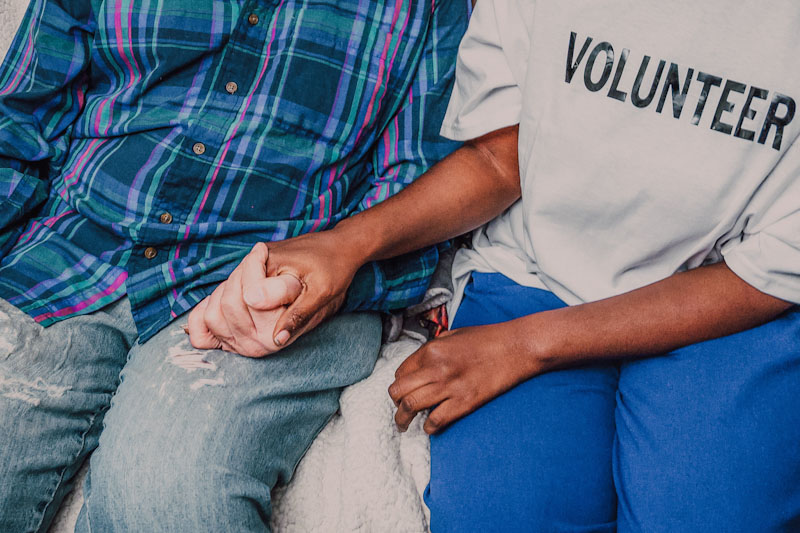New CDC Findings: Drug Overdose Deaths Rise, Racial and Ethnic Disparities Widen
In just one year, death rates increased 44% for Black individuals, and 39% for American Indian and Alaska Native individuals

While data already confirmed a dramatic increase in drug overdose deaths between 2019 and 2020, a new Centers for Disease Control (CDC) Vital Signs report breaks down how specific communities and demographics were impacted. BIPOC communities were disproportionately affected by drug overdose deaths, with especially eye-opening statistics in certain age, gender and socioeconomic categories.
As provisional data shows another year of increased drug overdose deaths in 2021, All Sober continues to support governmental and other initiatives promoting increased access to affordable evidence-based care and preventative measures, including the distribution of naloxone.
Addiction Policy Forum has more on what the latest findings mean, as well as CDC recommendations on preventing overdose deaths:
Data from the State Unintentional Drug Overdose Reporting System (SUDORS) was analyzed from 25 states and Washington, D.C., and found that in just one year (2019–2020), overdose death rates increased 44% for Black individuals, and 39% for American Indian and Alaska Native (AI/AN) individuals, compared to a 22% increase among white individuals.
In counties with more income inequality, overdose death rates for Black individuals were more than two times as high as in counties with less income inequality. Similarly, overdose death rates for younger AI/AN women were nearly two times those of younger white women. Even more staggering, overdose death rates in older Black men were nearly seven times as high as those in older white men. Overdose death rates were also found to be highest in counties with higher potential substance use treatment capacity and mental health providers, and naloxone administration was low among all groups.
While it was already known that drug overdose deaths increased 30% from 2019 to 2020, this new data shows how starkly disparities exist in overdose deaths, specifically among racial and ethnic minority populations.
To combat these disparities and advance health equity, the CDC released several evidence-based recommendations for communities to implement, including:
- Incorporating comprehensive, culturally responsive and community-based prevention and response efforts that address polysubstance use and social determinants of health;
- Increasing access to proven treatment for all people with substance use disorders (SUD); and
- Implementing harm reduction services to reduce overdoses and save lives, including naloxone, fentanyl test strips, SUD treatment referrals, and syringe service programs (SSPs).
The report concludes by sharing:
“Drug overdoses are preventable, and rapidly scaling up multisectoral, culturally responsive prevention efforts across federal, state, local and tribal entities that place equity as a central tenet to address the escalating overdose crisis is urgently needed.”
While provisional data from the CDC already indicates an increase in drug overdose deaths in 2021, by implementing the above strategies, communities can create health equity among all members and prevent drug overdose deaths.
Make an Immediate Impact
To help prevent overdose deaths, here are four strategies from the CDC that anyone can implement today:
- Talk to a doctor if you or someone close to you needs help for substance use.
- Learn about naloxone, a lifesaving drug that can reverse the effects of an opioid overdose when administered in time. Ask your doctor or pharmacist for a naloxone prescription or get naloxone from local organizations if you or a loved one uses illicit drugs, has a substance use disorder, takes high-dose prescription opioids or has other risk factors for opioid overdose.
- Read and share resources about overdose prevention and raise awareness about the communities who are disproportionately impacted by overdose.
- Learn more about reducing stigma, which can be a major barrier to getting help.
To read the full report, visit https://www.cdc.gov/vitalsigns/overdose-death-disparities/.
Source: Addiction Policy Forum
More Help & Information
Sobriety vs. Recovery: What's the Difference?
Are the concepts themselves up for debate? Do they require certain treatments, or abstinence from everything? It's complicated! And new ways of thinking are changing the conversation.
Now Elite NFL Players, They First Tackled Addiction | News Roundup
All Sober compiles the best of the latest headlines. Here's your addiction and recovery news for the week of Feb. 19, 2024!
Help Them Help You: Explaining Your Mental Health to Your Family
Your mental health can affect — and be affected by — your loved ones. Here's how to discuss it with them so everyone can heal.
Dry January (and Beyond): The Possibilities Are Endless
There's never been a better time to go sober. Whether you're trying it out this month or already living the life, join us for some tips, ideas, inspiration — and maybe even new friends.
Sober Holiday Tips: Meeting 'Share-a-Thons'
Need to get out of the house for a bit and see some friendly sober faces? Recovery support group meeting marathons run 24/7 from Christmas Eve through New Year's Day.
What Happens After an Intervention?
Your loved one agreed to get treatment for addiction during their intervention — or not. Here's what you need to know about what comes next.
We're in This Together: Building a Healthy Sober Support Network
You are the captain of your recovery, but you don't have to do it alone. A sober support network will lift you up in tough times and celebrate your triumphs.
Real-Life Recovery Tips: Phone a Friend
When you're traveling, you can take your sober support network with you — right in your pocket. Rocker Kasim Sulton shares his top recovery tip in this video.











